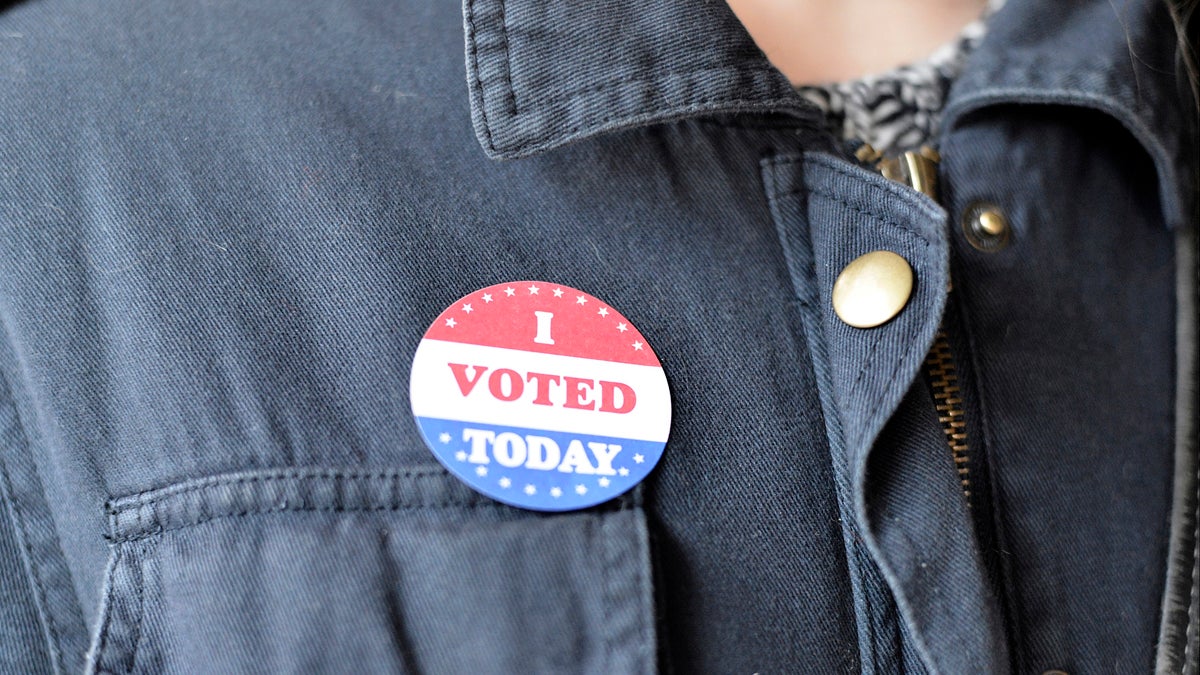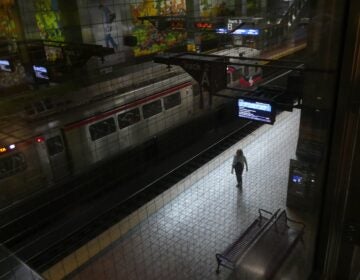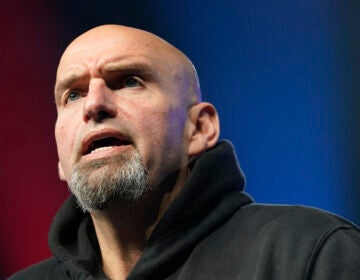Free transit on Election Day? SEPTA votes no
Other cities offer free transit on Election Day: Dallas, Houston, Tampa, Minneapolis, Austin, and Asheville, among others.

A sticker from Election Day 2016. (Bastiaan Slabbers/WHYY News)
This story originally appeared on PlanPhilly.
—
A group of civic-minded citizens wants SEPTA to offer free rides on Election Day this year as a way of encouraging voters to show up to the polls. But the transit authority isn’t hopping on board.
“Although it sounds like a good idea, I don’t think it is,” said Fran Kelly, SEPTA’s assistant general manager for public and government affairs.
The urbanist group, 5th Square, on Tuesday, launched an online petition calling on SEPTA and city officials to make all rides on Nov. 6 free. Nearly 500 signatures were added to the appeal in its first two days online.
“It gives people one less barrier to the polls, by being free,” said Dena Driscoll, author of the online petition and a South Philadelphia resident.
Other cities offer free transit on Election Day: Dallas, Houston, Tampa, Minneapolis, Austin, and Asheville, among others. But it’s unclear whether or not free bus rides encourage voters to the polls, Driscoll admits.
“It seems like no one has studied the impact,” she said.
For support, the petition cites a survey out of Tufts University on the reasons why young people ages 18-29 didn’t vote in 2016. Lack of transportation was cited as a factor by 19 percent of those with college experience and 35 percent of those without. Sixty-five percent of respondents attributed their antipathy to the candidates and issues for keeping them away from the polls.
A Pew Research Center study of registered voters who stayed home on Election Day 2016 showed that just 3 percent of non-voters said a lack of transportation was the main thing that kept them from voting, and another 2 percent blamed inconvenient polling places. For comparison, the candidates’ repugnancy and general apathy were the top two cited reasons, with 25 and 15 percent respectively.
Free transit on Election Day may be a solution in search of a problem, said Lisa Deeley, chair of the Philadelphia City Commissioners, which oversee elections in the city.
“I appreciate the sentiment, and I appreciate all the interest around the upcoming election, however for Philadelphians, I don’t really think SEPTA is the answer,” said Deeley. “We’re bound by a consent decree, so most of our polling locations are within a five-block radius.”
There are 1,686 polling places spread across Philadelphia. For most voters, a trip to the polls is no longer than a short walk. For many, the nearest bus stop may be farther away than their polling place.
SEPTA declined to estimate how much providing free rides all day on Election Day would cost. But Deputy General Manager Rich Burnfield offered the sponsored free rides on the Broad Street Line after the Eagles game as a comparison. Those cost $25,000-$30,000, and “just from one station [NRG Station] for four hours,” said Burnfield.
Calculating a system-wide cost would be difficult: Many riders rely on weekly or monthly passes; for them, a single free day would have little impact. In the 2018 fiscal year, SEPTA took in $466,569,000 in passenger revenues, including passes. That averages out to about $1.28 million a day, but the actual cost in lost revenues from free Election Day trips would likely be lower because that figure includes pass revenues.
Still, the idea has some backers. Jen Devor, who recently declared her candidacy for the City Commissioner race in 2019, said she liked it.
“I think is a cool idea to help people get to and from work, childcare, etc. in between voting and it’s already accomplishing something by adding to the conversation around voter engagement,” she said in a text message.
While 5th Square doesn’t realistically expect trips to be free this year, Driscoll said the group hopes to start a conversation about future elections — and in the meantime, she has one final argument for city officials: messaging.
“It would be a really great boost for election day PR and marketing to have all the stuff saying SEPTA’s free because of Election Day.”
Transportation questions aside, voters who can’t make it to the polls because of illness or disability can vote via an absentee ballot – the deadline to request one this year is October 30.
WHYY is your source for fact-based, in-depth journalism and information. As a nonprofit organization, we rely on financial support from readers like you. Please give today.






